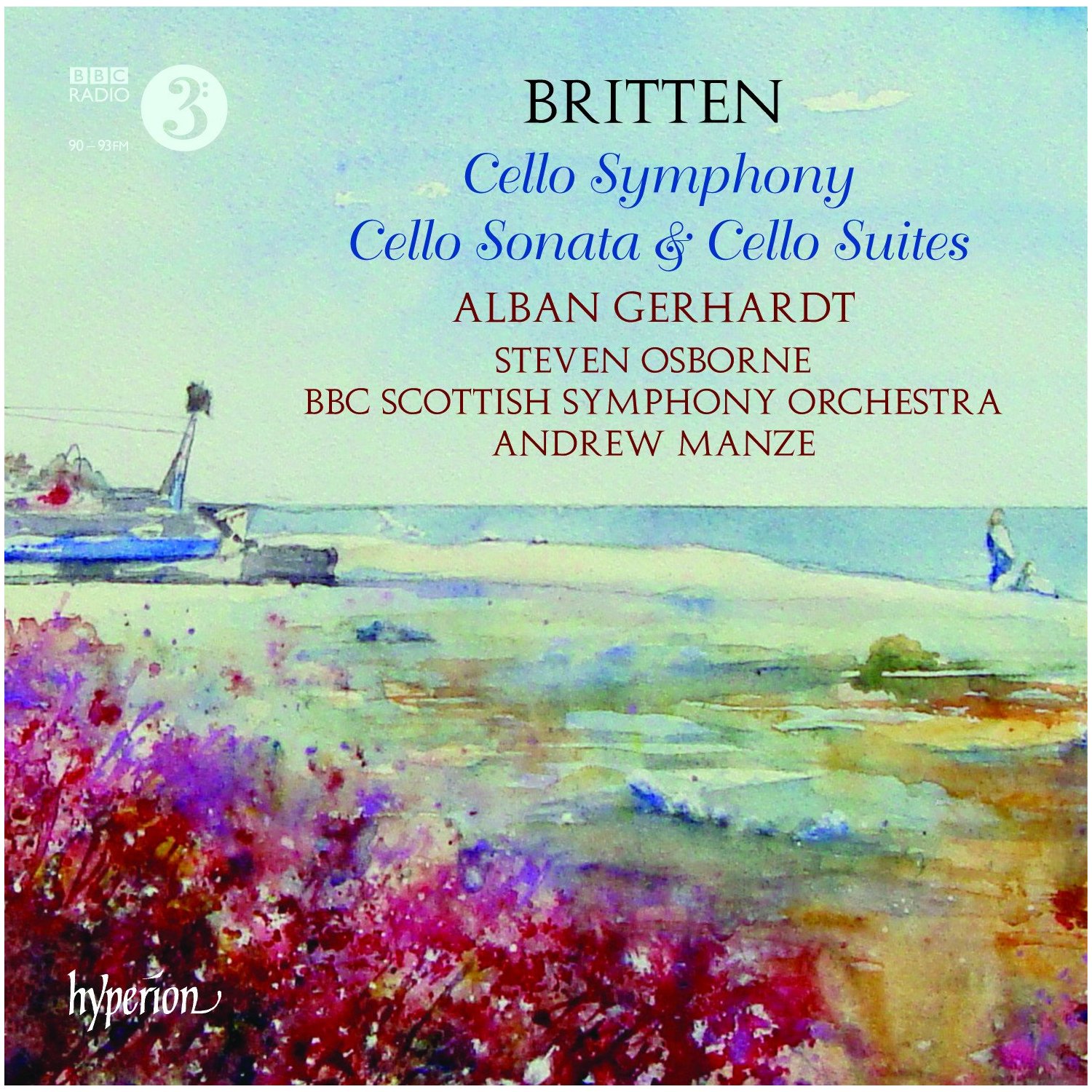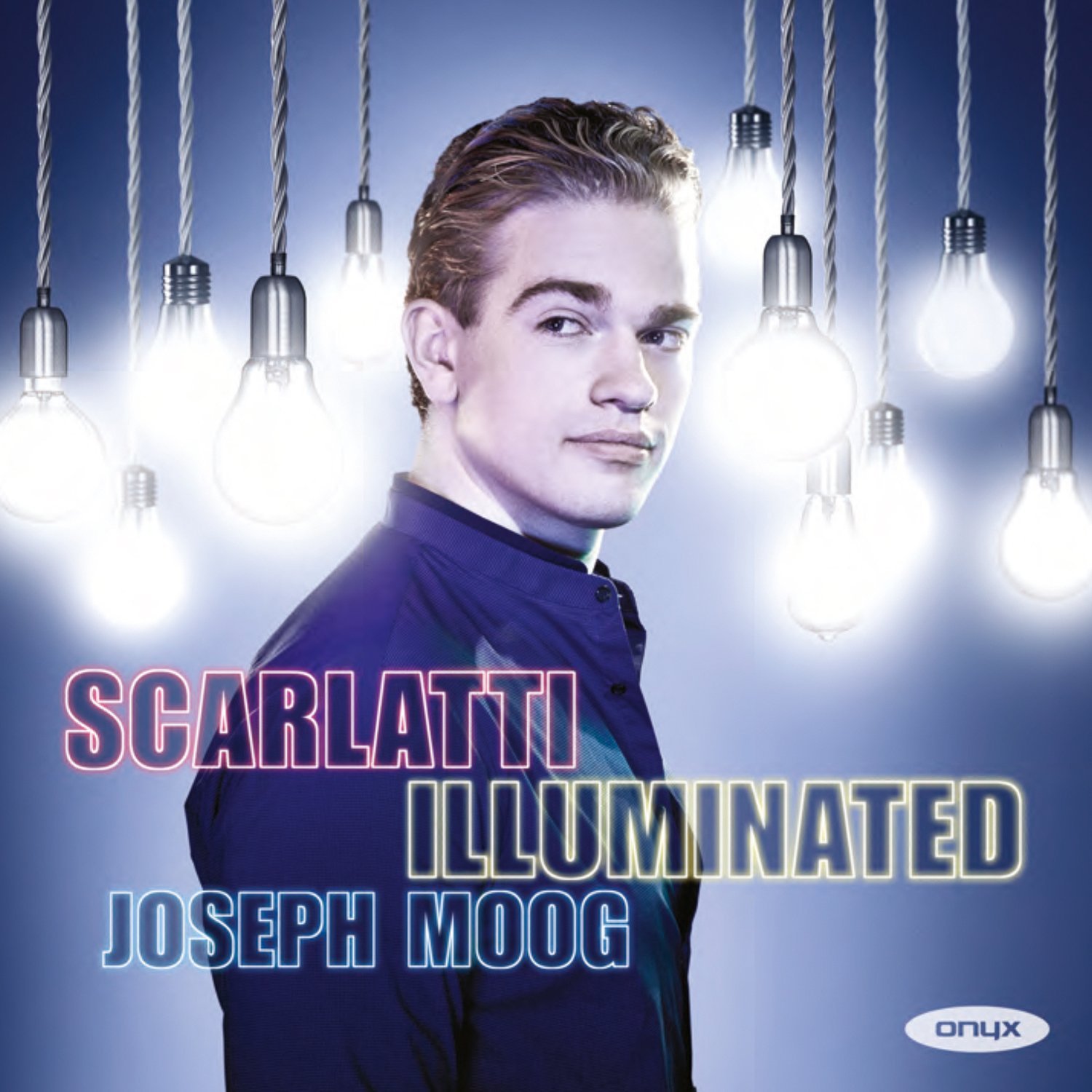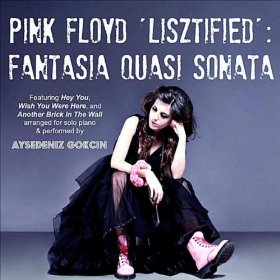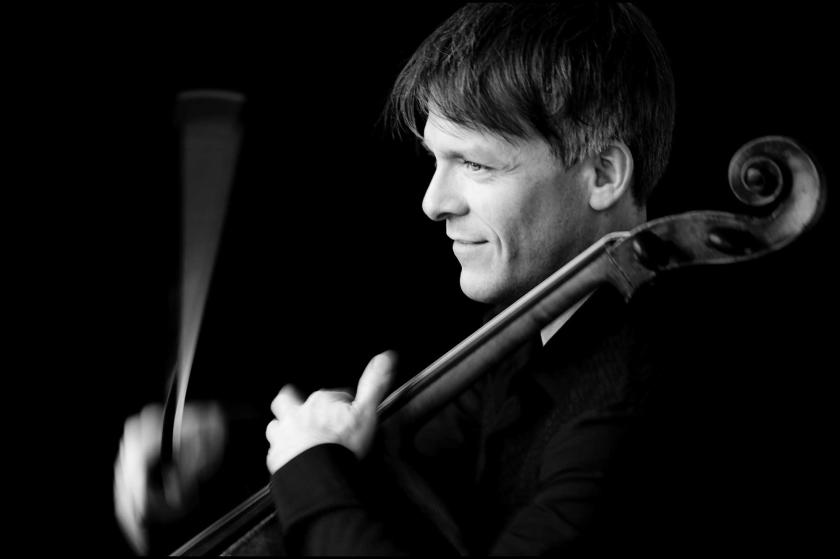
This is a brilliant anthology, wonderfully performed and beautifully recorded. Britten’s cello music was written for Mstislav Rostropovich, whom the composer had met in 1960 at the UK premiere of Shostakovich’s Cello Concerto no 1. The Sonata was completed shortly afterwards. The reading by Alban Gerhardt and Steven Osborne is refreshingly extrovert, and Britten’s tricksy piano writing has enormous impact. Gerhardt’s boldness makes the work feel less oppressive and brooding than usual. The last movement Molto perpetuo is exhilarating, with the final rush to C major exultant. Britten’s three Suites for solo cello sound equally persuasive here, Gerhardt’s near-vocal palette of colours enabling them to speak with disarming clarity. Best of all is the Third, composed in the early 1970s and based on Russian folk themes. We also get a tiny, enigmatic late solo cello work, based on the initials of the Swiss conductor Paul Sacher.
It’s Britten’s large-scale Cello Symphony which is the toughest nut to crack; Shostakovich’s contemporaneous concertos are models of lucidity by comparison. The symphony’s prevailing mood is oppressively dour in places. Search for a hummable tune and you’ll struggle – until you reach the Adagio, and there’s a sublime high cello line accompanied by muted horn and tuned percussion. The Passacaglia’s trumpet theme promises much, but the expected uplift never quite arrives. The work's major key close is seemingly reached as much by accident as by design. All compelling, though, and sharply accompanied by Andrew Manze’s BBC Scottish players.

I’ve a weak spot for hearing the baroque keyboard repertoire played on a modern piano. Bach has been endlessly rearranged and transcribed, and Joseph Moog’s collection includes much more obscure retreads of Scarlatti, made by Carl Tausig, Ignaz Friedman and Walter Gieseking. Strangely, the originals don’t sound at all primitive or bare when compared to the revamped versions. Scarlatti's sonatas are compelling, mischievous pieces. You’re prompted to laugh out loud at the hyperactive D major jollity of the K96 sonata, four minutes of zany rhythmic playfulness and bombast. Then you’ll be floored by an elegant, sinuous bass line, as with the more expansive F minor sonata K466. Moog’s reading of the K70 is one of the most electrifying bits of pianism you’ll hear. The two hands battle unsuccessfully for supremacy, and the sonata is articulated with supernatural accuracy. Sample the Sonata in E K380 and marvel at Scarlatti’s crystalline two-part writing, giving way to some deeply peculiar chord progressions and parping horn calls. Why isn’t this music better known?
The Tausig and Friedman revamps are sumptuous but don’t add that much, apart from juicily thickening the textures. Scarlatti’s eccentricity is happily preserved. Walter Gieseking’s Chaconne on a theme by Scarlatti sticks out like a sore thumb, as the theme of Scarlatti’s K32 sonata is transmogrified in epic, anachronistic style over a compact seven minutes. All magnificently strange and supremely entertaining, dispatched with panache and good humour.

In case you haven’t noticed, theartsdesk has been celebrating the 40th anniversary of Pink Floyd’s The Dark Side of the Moon. Turkish pianist AyseDeniz Gokcin has transcribed three non-Dark Side Floyd songs to form a three-movement suite. Liszt wasn’t averse to reinventing others’ material; he left behind imaginative piano transcriptions of Beethoven symphonies and quirky, occasionally vulgar reinventions of 19th-century operatic highlights. So, arranging Floyd numbers in Lisztian style would seem to make perfect sense. Pink Floyd were never the cheeriest of bands, their weightier, more portentous offerings often completely devoid of humour. In contrast, Gokcin’s transcriptions combine due respect with a sense of the ridiculous – they’re technically impressive and often very funny.
Hey You’s rhapsodic treatment is at its best when Gokcin allows the right hand to take flight. There’s a problem with too much tremolando in the bass which, during the quotation from Another Brick In The Wall, begins to resemble a melodramatic silent film score. The effect does, however, sound convincingly 19th-century. Which is where the other two movements conspicuously stand out, their harmonies a little too rooted in the 1970s. Still, I liked Gokcin’s soulful, restrained take on Wish You Were Here, and a careful study of Liszt’s nutty Totentanz has clearly influenced her satanic, pounding assault on Another Brick In The Wall. A curio, but one worth investigating. The sound is bright and close, suiting Gokcin’s punchy playing style.















Add comment